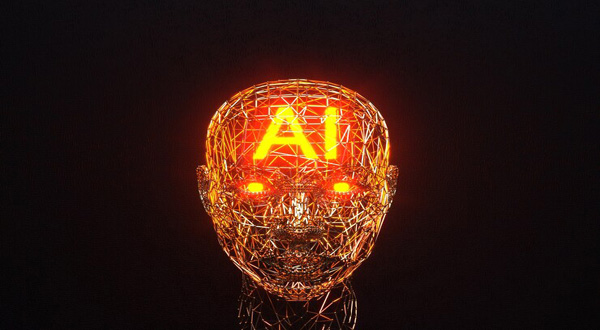Who is the Father of Artificial Intelligence?
- Update Time : Thursday, March 7, 2024
- 22 Time View

Who is the Father of Artificial Intelligence?: Artificial Intelligence (AI) has become an integral part of our lives, from voice assistants to autonomous vehicles. But have you ever wondered who laid the foundation for this groundbreaking technology? In this article, we’ll delve into the origins of AI and explore the question: Who is the father of artificial intelligence?
Table of Contents
| Sr | Headings |
|—–|————————-|
| 1 | Introduction |
| 2 | Alan Turing: A Visionary|
| 3 | The Dartmouth Conference|
| 4 | John McCarthy’s Legacy |
| 5 | AI’s Evolution |
| 6 | Contemporary Influences |
| 7 | Conclusion |
| 8 | FAQ: Is Alan Turing the sole father of AI? |
| 9 | FAQ: Who coined the term “artificial intelligence”? |
| 10 | FAQ: How has AI evolved over time? |
| 11 | FAQ: What are some contemporary influences in AI? |
| 12 | FAQ: Can AI ever surpass human intelligence? |
Introduction
AI, the ability of machines to mimic human intelligence, has captivated minds and revolutionized industries. But behind this technological marvel lies a history rich with innovation and pioneering thinkers. Let’s embark on a journey to uncover the father of artificial intelligence and the milestones that shaped its trajectory.
Alan Turing: A Visionary
In the annals of AI history, few names shine as brightly as Alan Turing’s. Turing, a British mathematician and logician, is often hailed as the father of modern computing and AI. His groundbreaking work during World War II in deciphering German codes using the Enigma machine laid the groundwork for machine learning algorithms.
Key Point: Alan Turing’s contributions to cryptography and computing paved the way for modern AI technologies.
The Dartmouth Conference
In 1956, a seminal event took place at Dartmouth College, where the term “artificial intelligence” was coined. This historic conference, led by John McCarthy, Marvin Minsky, Nathaniel Rochester, and Claude Shannon, laid the foundation for AI as an interdisciplinary field.
Key Point: The Dartmouth Conference marked the birth of AI as a distinct field of study.
John McCarthy’s Legacy
John McCarthy, an American computer scientist, played a pivotal role in shaping the early landscape of AI. He coined the term “artificial intelligence” and is credited with developing the Lisp programming language, a cornerstone of AI research.
Key Point: John McCarthy’s contributions cemented his status as a founding figure in the field of artificial intelligence.
AI’s Evolution
From its nascent stages to the present day, AI has undergone a remarkable evolution. Early AI systems focused on rule-based reasoning and symbolic manipulation, while modern AI incorporates machine learning, deep learning, and neural networks to achieve unprecedented feats of intelligence.
Key Point: The evolution of AI has been characterized by advancements in algorithms, computing power, and data availability.
Read More: What is the Best Definition of Artificial Intelligence by Authors?
Contemporary Influences
In the contemporary landscape of AI, diverse influences shape its trajectory. From industry titans like Google and Facebook investing heavily in AI research to the ethical considerations surrounding AI’s impact on society, a myriad of factors influence the development and deployment of AI technologies.
Key Point: Contemporary influences in AI encompass technological, ethical, and societal dimensions.
Read More: What is Artificial Intelligence by Scholars?
Conclusion
In conclusion, the father of artificial intelligence is a title bestowed upon visionaries like Alan Turing and John McCarthy, whose pioneering work laid the foundation for AI as we know it today. From the conceptualization of AI at the Dartmouth Conference to its evolution into a transformative force, the journey of AI is marked by innovation, collaboration, and the relentless pursuit of knowledge.
FAQ: Is Alan Turing the sole father of AI?
No, while Alan Turing made significant contributions to the field of AI, he is not the sole father of AI. The development of AI was a collaborative effort involving numerous pioneers and researchers.
FAQ: Who coined the term “artificial intelligence”?
The term “artificial intelligence” was coined by John McCarthy during the Dartmouth Conference in 1956, where he proposed the idea of a summer research project to explore the feasibility of creating artificial intelligence.
FAQ: How has AI evolved over time?
AI has evolved from early rule-based systems and symbolic manipulation to modern approaches such as machine learning, deep learning, and neural networks. This evolution has been driven by advancements in algorithms, computing power, and the availability of data.
FAQ: What are some contemporary influences in AI?
Contemporary influences in AI include technological advancements, ethical considerations, societal impact, and the involvement of industry giants like Google and Facebook in AI research and development.
FAQ: Can AI ever surpass human intelligence?
The question of whether AI can surpass human intelligence is a subject of ongoing debate and speculation. While AI has demonstrated remarkable capabilities in specific tasks, achieving general artificial intelligence on par with human intelligence remains a formidable challenge.












